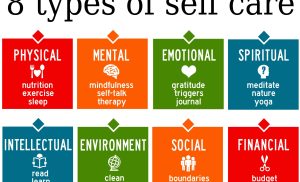What Is The Impact Of Daily Routines On Stress Levels?
Imagine living a life free of stress, where your daily routines have a positive impact on your well-being. In this article, we will explore the fascinating connection between daily routines and stress levels. Discover how simple changes to your everyday habits can not only reduce stress but also enhance your overall quality of life. From morning rituals to evening rituals, we will delve into the different ways in which your routines can either contribute to or alleviate stress. So, grab a cup of tea, sit back, and let’s explore the profound impact of daily routines on stress levels.
The Relationship Between Daily Routines and Stress Levels
Being aware of the impact daily routines have on stress levels is crucial in maintaining a balanced and healthy lifestyle. Whether we realize it or not, our daily routines play a significant role in determining our stress levels. In this article, we will explore the definition of daily routines, gain an understanding of stress levels, and discuss the deep connection between the two. Additionally, we will delve into the factors that can either mitigate or exacerbate the impact of daily routines on stress levels.
The Definition of Daily Routines
Daily routines refer to the habitual activities, tasks, and behaviors that individuals engage in on a regular basis. These routines can vary from person to person but often involve activities such as waking up at a certain time, eating meals, going to work or school, exercising, and engaging in leisure activities. Daily routines provide structure and organization to our lives, creating a framework within which we navigate our daily responsibilities.

Understanding Stress Levels
Before delving into the relationship between daily routines and stress levels, it is essential to have a clear understanding of stress itself. Stress is a natural physiological and psychological response to a perceived threat or demand. While some level of stress can be beneficial and motivate us to perform at our best, excessive or chronic stress can have detrimental effects on our well-being.
The Connection Between Daily Routines and Stress Levels
Our daily routines have a direct and profound impact on our stress levels. The way we structure and manage our daily activities can either contribute to increased stress or help alleviate it. By recognizing the connection between our routines and stress levels, we can make intentional choices that promote a healthier and more balanced lifestyle.

Factors That Affect the Impact of Daily Routines on Stress Levels
It is important to note that the impact of daily routines on stress levels can vary from person to person. Several factors come into play, influencing the degree to which routines impact stress levels. These factors include individual differences, external environment, work-life balance, and personal coping mechanisms. Understanding these factors allows individuals to tailor their routines to optimize stress reduction.
Positive Effects of Daily Routines on Stress Levels
Establishing a sense of control is one of the positive effects of daily routines on stress levels. When we have a structured routine in place, we feel a greater sense of control over our lives. This sense of control can alleviate stress by reducing feelings of uncertainty and chaos.
Creating a sense of stability and predictability is another positive effect of daily routines. Knowing what to expect and having a routine to rely on can provide a sense of security and reduce stress levels. It eliminates the need to constantly make decisions or engage in excessive planning, allowing individuals to focus their energy on more essential tasks.
Daily routines also increase productivity and efficiency. When we have a clear plan for the day, we can prioritize tasks and allocate time effectively. This prevents feelings of overwhelm and helps us accomplish more in less time, ultimately reducing stress levels.
Promoting self-care and well-being is a crucial aspect of daily routines. By incorporating activities such as exercise, relaxation techniques, and sufficient rest, individuals can prioritize their physical and mental health. These self-care practices play a significant role in stress reduction and overall well-being.

Negative Effects of Daily Routines on Stress Levels
While daily routines can have positive effects on stress levels, it is important to acknowledge that they can also contribute to increased stress if not managed appropriately.
Rigid and inflexible routines can be detrimental to stress levels. When routines become overly strict, leaving no room for adaptation or spontaneous activities, individuals may feel trapped and pressured. This inflexibility can lead to increased stress levels as it reduces the ability to respond to changing circumstances.
Monotony and boredom are also negative effects that can arise from daily routines. Engaging in the same activities day in and day out can become dull and uninspiring. This lack of variety can contribute to feelings of monotony and boredom, ultimately increasing stress levels.
Excessive workload and burnout are common negative effects of daily routines. When individuals constantly push themselves to do more and take on an overwhelming workload, they become susceptible to burnout. Burnout is characterized by emotional exhaustion, decreased motivation, and reduced performance, all of which significantly contribute to stress levels.
Lack of adaptability to changes is another negative effect of rigid routines. Life is unpredictable, and unexpected situations can arise at any time. If individuals are unable to adapt their routines in response to these changes, stress levels can skyrocket due to a lack of preparedness and increased pressure.
Optimizing Daily Routines for Stress Reduction
Optimizing daily routines for stress reduction involves intentional planning and mindful decision-making. By implementing certain strategies, individuals can enhance their routines to promote overall well-being and minimize stress.
Identifying personal stress triggers is the first step in optimizing daily routines. Understanding what factors contribute to stress allows individuals to make conscious choices that mitigate their impact. Whether it is deadlines, excessive multitasking, or lack of self-care, addressing these triggers is essential in optimizing daily routines.
Implementing time management and prioritization techniques is crucial in reducing stress levels. By breaking tasks into manageable chunks, scheduling specific times for each activity, and prioritizing important tasks, individuals can enhance productivity while reducing stress. Effective time management enables individuals to have control over their routines and ensures that tasks are completed without overwhelming pressure.
Incorporating relaxation techniques and breaks is vital for stress reduction. Building in dedicated periods for meditation, deep breathing exercises, or other relaxation techniques can provide mental and physical rejuvenation. Taking regular breaks throughout the day allows individuals to recharge and prevent burnout, reducing overall stress levels.
Maintaining a healthy work-life balance is essential in optimizing daily routines. Balancing professional responsibilities with personal activities and relationships helps individuals avoid excessive workload and ensures that time for self-care and leisure is prioritized. This balance promotes overall well-being and reduces stress levels.
Tips for Creating and Maintaining Daily Routines
Creating and maintaining daily routines can be challenging, but by following these tips, individuals can establish a more structured and stress-reducing lifestyle.
Start with a clear schedule and goals. Having a comprehensive schedule that outlines daily activities and specific goals creates a framework for efficient time management and stress reduction.
Establish consistent sleep patterns. A regular sleep routine is essential for overall well-being and stress reduction. Going to bed and waking up at consistent times promotes better sleep quality and ensures individuals are well-rested.
Include time for physical activity. Exercise is a powerful stress-reducing tool. By allocating time for physical activity within daily routines, individuals can enhance mood, improve physical health, and reduce stress levels.
Allocate breaks and downtime. Intentionally scheduling periods of rest and relaxation throughout the day allows individuals to recharge mentally and physically, preventing burnout and reducing stress.
The Role of Mindfulness in Daily Routines
Mindfulness is a powerful practice that can significantly impact stress levels within daily routines. By incorporating mindfulness techniques, individuals can cultivate a deeper sense of presence and reduce stress.
Practicing mindful awareness involves being fully present and engaged in each moment. By focusing on the present rather than dwelling on the past or worrying about the future, individuals can reduce stress levels and enhance overall well-being.
Incorporating mindfulness exercises, such as mindfulness meditation or body scans, can promote relaxation and stress reduction. These practices help individuals become more attuned to their thoughts, emotions, and physical sensations, allowing them to respond to stressors more effectively.
Promoting mindful eating and hydration is an essential aspect of daily routines. By eating mindfully, individuals can savor their meals, enhance digestion, and reduce stress related to food. Similarly, staying hydrated throughout the day promotes overall well-being and helps prevent dehydration-induced stress.
Using mindfulness to manage stress involves utilizing mindfulness techniques to respond to stressors more effectively. By cultivating a non-judgmental and compassionate attitude towards oneself and stress, individuals can reduce reactivity and enhance their ability to cope with stressful situations.
Effects of External Factors on Daily Routines and Stress Levels
While individual routines play a significant role in determining stress levels, external factors also exert influence on daily routines and stress. It is important to be mindful of these external factors and their impact on daily routines.
The impact of the work environment cannot be overlooked. A toxic work environment characterized by high levels of stress, excessive demands, and poor support can significantly affect stress levels. Individuals should strive to create a positive work environment or seek out opportunities that align with their values and reduce stress.
Interactions with family and friends can also impact daily routines and stress levels. Maintaining healthy relationships and establishing effective communication can contribute to lower stress levels, while strained or unhealthy relationships can increase stress.
Technology and social media influence are increasingly prevalent in our daily lives. Constant exposure to technology can disrupt routines and contribute to stress levels. Setting boundaries and allocating designated technology-free zones or periods within daily routines can prevent excessive screen time and enhance well-being.
Physical surroundings and organization can impact stress levels as well. Cluttered or disorganized spaces can lead to increased stress and difficulty focusing. Creating a clean, organized, and aesthetically pleasing environment can promote a sense of calm and reduce stress levels.
The Importance of Flexibility in Daily Routines
Flexibility is a crucial element in daily routines for stress reduction. Recognizing the need for adaptation and incorporating flexibility within the structure of routines enables individuals to navigate unexpected situations and maintain a balanced lifestyle.
Recognizing the need for adaptation is essential. Life is unpredictable, and circumstances can change in an instant. By acknowledging this fact, individuals can proactively adjust their routines to accommodate unexpected events, reducing stress levels.
Creating flexibility within the structure of routines allows for spontaneity while maintaining core elements. Allowing for periods of free time, adjusting schedules when necessary, and being open to modifying routines based on changing needs are key aspects of a flexible approach.
Managing unexpected situations is an essential skill for maintaining stress-free routines. It involves remaining composed, problem-solving effectively, and adapting plans when necessary. By approaching unexpected situations with a flexible mindset, individuals can prevent stress from escalating.
Balancing routine and freedom is crucial for stress reduction. While routines provide structure and stability, excessive rigidity can increase stress levels. Incorporating periods of freedom, spontaneous activities, and flexibility within routines can create a more balanced and stress-free lifestyle.
Case Studies: How Daily Routines Impact Stress Levels
Analyzing real-life case studies can provide valuable insights into the impact of daily routines on stress levels. Let’s explore four case studies that highlight different scenarios and their effects.
Case Study 1: The Effects of a Well-Planned Routine
In this case study, an individual has a well-planned routine that prioritizes self-care, work-life balance, and stress reduction techniques. As a result, they experience lower stress levels, increased productivity, and an overall sense of well-being.
Case Study 2: Challenges with a Chaotic Routine
In this case study, an individual lacks a structured routine and consistently experiences high levels of stress. The lack of organization, excessive workload, and absence of self-care practices contribute to chronic stress, burnout, and decreased well-being.
Case Study 3: The Influence of a Balanced Routine
In this case study, an individual balances responsibilities, self-care, and leisure activities within their routine. They prioritize a healthy work-life balance and incorporate stress reduction techniques such as mindfulness and regular exercise. As a result, they experience improved stress management and heightened overall well-being.
Case Study 4: Adapting Routines to Reduce Stress
In this case study, an individual encounters unexpected life changes that disrupt their established routine. However, by being flexible and adapting their routine to the new circumstances, they successfully manage stress levels and maintain a balanced lifestyle.
Conclusion
Daily routines have a profound impact on stress levels. By understanding the connection between routines and stress and implementing strategies to optimize routines for stress reduction, individuals can cultivate a healthier and more balanced lifestyle. It is crucial to recognize the factors that affect the impact of routines, both positively and negatively, and make intentional choices that promote overall well-being. By incorporating mindfulness, maintaining flexibility, and being mindful of external factors, individuals can successfully navigate daily routines and minimize stress levels.

















